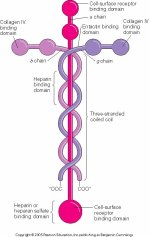I'll bite, since it seems that no one else in favor of science is posting here.
First off, I'll say that I've never been one to object to someone else's beliefs. What I object to is the tendency, especially prevalent on the Internet, to either insult someone for not following the same beliefs, or when confronted with an argument, to throw up a smokescreen and dodge the point.
I also take issue with some of the facts presented here, but that's a topic for actual argument, so I'll get to that later. One last thing:
I pretty much bailed out at "Carl Sagan said..."
I admit this bothers me. It's pretty much a "I'm not even going to listen to what you're saying because I'm already convinced you're wrong." The attitude goes both ways, but I don't like it either way. Whatever you may believe or not believe, Carl Sagan did make significant contributions in our effort to understand our universe. Whether you believe that universe is God-created or the result of natural processes is up to you.
It also strikes me as somewhat disingenuous to say that "Because x amount of scientists believe in an intelligent design/young earth theory, those who support evolution and an old Earth are frantic and angry because they're being proven wrong." Sure, such people will be published - science tends to hear all arguments, even if the scientists themselves are derisive of one or another. Scientists are people too, with their own beliefs and prejudices, for either side. Americans also seem to be the only industrialized peoples that have such a widespread problem with the theories of evolution/old Earth. Are we going to claim that we're just more "enlightened" than the rest of the world or that we're somehow chosen to understand the real truth of the world? (By the way, Darwin faced intense social pressure from many of his peers after publishing his theory of evolution, so it's not surprising that he may have backed down after the continued scrutiny took its toll.)
Now, first... the Moon.
The Earth is subject to meteor strikes. Leaving the dinosaurs out of this, an impact of significant power took place in the early twentieth century at Siberia. I don't think (I hope) that anyone will argue against the fact that, in our universe, there are a lot of things moving around, and sometimes those things collide. The Shoemaker-Levy comets impacting Jupiter about ten years ago are another example of such. And our own Moon is no exception. Now, even with the naked eye, you can look out on a clear night and see that the Moon's surface is cratered.
What does all of this mean? It means that the likelihood of the Moon's orbit and/or movement away or towards the Earth is not by any means an uninterrupted continuation of movement away or towards the Earth. The Moon's larger craters called mascons actually exert an influence on the Moon's gravitational field. Hence, it's quite possible that the Moon's speed changed via impact, or perhaps some other reason... regardless, the Moon's orbital velocity and rotational velocity slowed over time until they became stable, which is a process that doesn't take place over short periods of time. It may be a human limitation to be unable to see or comprehend things that take place in infinitesimally small amounts over immense amounts of time. And the figure I recall is the 3.8cm one, not the 32cm one that was cited.
Now, can this be proven to anyone's satisfaction? Sadly, probably not; if you don't believe it already, you'd just say that you have your facts and I have mine and this solves nothing, and if you do, well, I didn't need to convince you anyway, did I?
Secondly, the radiocarbon (carbon-14) dating issue that you call up. The method used to prove the age of the Earth and its rocks is not radiocarbon dating; it's known that this technique cannot date anything past 60,000 years, so it's an example of a straw man. Radiocarbon dating is wrong, hence all forms of scientific dating is wrong, hence the Earth is not four billion years old. For one, radiocarbon dating is more often used to prove the age of things that were once living, since it's about all that will remain of them. Furthermore scientists are fully aware that radiocarbon dating can suffer from contamination problems - why would the material from Mount St. Helens be reading all sorts of wild dates? I'd say the fact that a
volcano just erupted on top of it might be a pretty big hint as to a source of contamination. Scientists know this, and that's why radiocarbon is not only an inexact science but one that is constantly attempting to improve its accuracy via new means such as Accelerator Mass Spectrometry. Scientists know they aren't perfect, but science is devoted to following the truth, no matter how personally devastating or difficult it might be for humanity to understand. And they aren't blind to errors of method or judgment; hence why scientists, instead of accepting that cold-fusion or stem-cell cloning were indisputable fact, undertook to see if the results could be falsified - and both were.
Finding the Earth's date is done via uranium-lead dating, not radiocarbon dating. And actually these tests have been done on outside sources of material - asteroids - that do not suffer from the sometimes deceptive actions of Earth's atmosphere and weathering action.
Yet I have a feeling all this is in vain, because someone else will present their own science refuting what I have said, and what you believe will depend on your pre-existing tendencies.
Also, a quick theoretical question: If God made Heaven and Earth on the "first day" but didn't make the Sun first, who's to say how long the first "day" was? How can you tell how long the "day" is without light to call it such?





